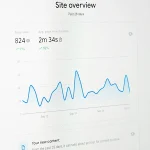Full-stack developer skills are highly in demand as every developer wants to upscale themselves and want to achieve full-stack web development skills. Moreover, tech giants and growing startups are also looking for full-stack developers as they going to solve the frontend and backend problems without the need for any other resources. Many frontend and backend developers are also learning skills to become full-stack developers so they can increase their worth and stand out among other developers.
In this blog, we are going to tell you the skills you need to become a full-stack web developer. It will cover all the skills so if you are a beginner or working on just one stack then you are going to get the full roadmap to full stack development.
Skills That You Need as a Developer in 2025

Skill development plays a vital role in the overall career trajectory. In 2025, full-stack web developers will be in demand as most IT firms and businesses want prominent and solid visibility on the Internet. Following are the areas where you can master and become a full-stack web engineer.
Front End Mastery
Frontend technologies and tech stacks are growing and more frontend technologies are coming up. Once you master front-end development, you’ll be able to transform complex concepts and designs into interactive codes.
Let’s take Amazon as another example. The developers behind Amazon knew they could create a platform where users could shop from the comfort of their homes, eliminating the hassle of physical store visits. Beyond just browsing, they introduced features like personalized recommendations powered by machine learning, one-click checkout for seamless transactions, and real-time order tracking.
These features addressed pain points like choice overload, long queues, and delivery uncertainties. But the backend and frontend technologies needed to create and maintain such a dynamic, scalable platform aren’t static—they require constant updates, optimization, and mastery of cutting-edge tools. The front-end Skills you will need to master.
Languages
- HTML
- CSS
- JS
Frameworks/Libraries
- React
- VueJS
- Angular
These are the languages, frameworks and libraries that you will need to master your front-end development.
Also read: React vs Angular vs Vue
Gear up Backend Technologies
Backend development is one of the essential skill sets of full-stack developers. This involves utilizing frameworks that enhance your development workflow by providing efficient, reusable, and time-saving components, ultimately reducing the amount of code you need to write. Excelling in back-end development also requires a solid grasp of databases, enabling you to effectively manage and retrieve data.
To build expertise in back-end development, begin with this essential list of programming languages, frameworks, and databases:
Back-end Languages:
- Python
- Java
- C#
- Ruby
- PHP
Back-end Frameworks:
- Node.js
- Express.js
- Django
- Ruby on Rails
- Flask
Database Systems:
- SQL Databases (MySQL, PostgreSQL, SQLite)
- NoSQL Databases (MongoDB, Redis, CouchDB)
Also read: Laravel vs. Node.js: Which One is Ideal for Web Development?
DevOps

DevOps combines development and operations to streamline and automate software delivery, ensuring smooth transitions from development to production.
Key practices include version control for tracking code changes, CI/CD for automating app lifecycles, and cloud services for scalability. Containerization ensures consistent app performance across platforms, enabling seamless experiences like PayPal’s functionality on both iOS and Android.
Overall, DevOps creates a loop that allows developers to create apps that are powerful, reliable, and faster to develop. However, you will need these skills to master DevOps.
- CI/CD Pipelines and Tools (Jenkins, Circle CI, GitLab)
- Containerization (Docker)
- Cloud Platforms (Amazon Web Services, Microsoft Azure, Google Cloud)
- Version Control (Git and Git Platforms)
Master UI/UX
UI and UX leave the first impression on the user which makes it a strong retention factor. Therefore, as a full-stack developer, you have to master design elements and UI/UX roles to create a good-looking web app.
CyberSecurity
Cybersecurity is critical in website and application development to protect systems and users from attacks, data theft, and unauthorized access. It builds user trust by ensuring sensitive information, like home addresses and payment details, remains secure.
Key cybersecurity skills for full-stack developers include:
- Authentication and Authorization: Managing user permissions and roles.
- System Logging and Monitoring: Tracking activity to detect and prevent breaches.
- Data Security: Using encryption and TLS to comply with regulations.
Beyond implementation, staying updated on security best practices and performing regular assessments are essential to counter evolving threats and safeguard user data, even in non-payment-focused apps.
Soft Skills

While hard skills like technical knowledge and hands-on experience are crucial for tech roles, soft skills are equally important for full-stack developers. These non-technical, interpersonal skills enhance how you communicate, collaborate, and navigate work environments.
Following are the soft skills for full stack developer:
- Critical Thinking and Problem-Solving: Analyzing and applying information to make sound decisions.
- Communication and Collaboration: Effectively working with others and sharing ideas.
- Time Management: Balancing multiple projects efficiently to meet deadlines.
- Adaptability: Quickly adjusting to new technologies, tools, and methodologies.
- Analytical Skills: Breaking down complex problems to develop effective solutions.
These soft skills for full-stack developers complement technical expertise, enabling developers to thrive in dynamic work environments and tackle challenges effectively.
Conclusion
These are full-stack developer all skills that they need to get the spotlight in this competitive market. Master the front & backend, have a strong grip on devOps & communication and you are all good to go.









